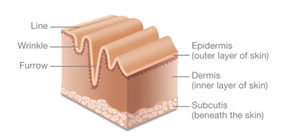Why Skin Ages
It’s inevitable, our skin will gradually change as we get older, and we use these telltale changes to help us judge someone’s age. For some lucky people these changes take longer to appear, and they are said to ‘look great for their age’. So what are the reasons for this, and what can we do to keep our skin looking young?
Your genes play a part
As we age the production of collagen and elastin fibres slows down, and also the skin loses some of its underlying layer of fat. This results in the skin losing its plumpness; it starts to sag and also becomes drier. These inevitable changes are called intrinsic ageing and the rate it occurs is largely dependent on our genes. Which of course we can’t change!
External factors
Most people now understand that their lifestyle greatly influences their skin health. These extrinsic factors play a huge role in the rate at which skin ages, and include sunlight damage, smoking, air pollution and a poor diet. These are factors we can change, and the sooner we do so, the younger we’ll stay.
Sun damage
A special mention is needed for sun damage as this is responsible for so many changes to the skin on our face. Just compare the soft smooth skin under your chin, where sunlight hardly touches, with the ‘crow’s feet’ area around your eyes to appreciate just how much the sun ages skin. Avoiding direct exposure will help, and protecting yourself with suncream will reduce the damage but even so, your face will still receive enough reflected light to initiate the ageing process.
